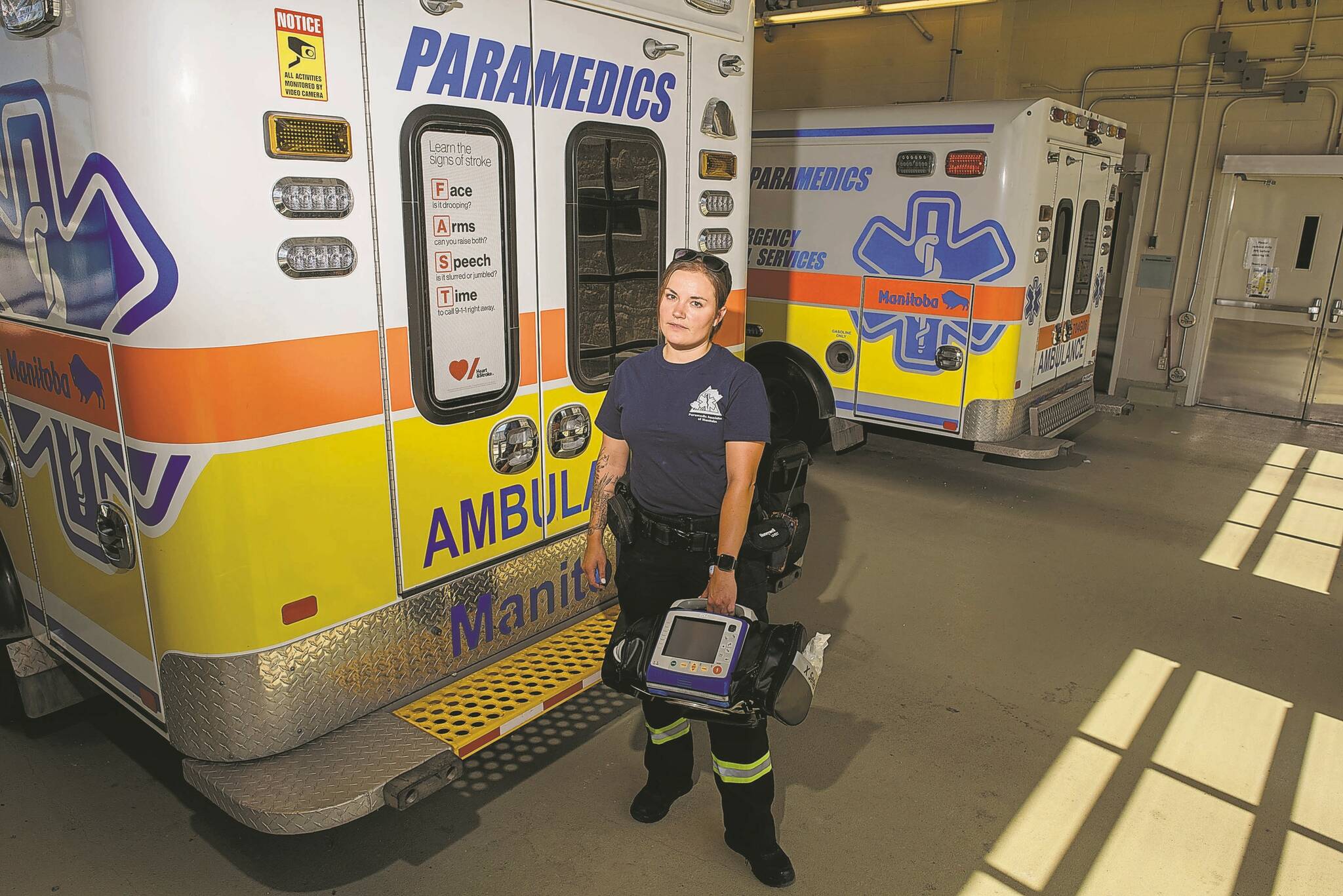Health
Shared Health’s Training Plan Faces Backlash Over Paramedic Shortage

A newly announced initiative by Shared Health to offer free training for emergency medical responders (EMRs) is facing significant criticism from health associations in Manitoba. The plan, which excludes paramedics, has drawn sharp responses from the Paramedic Association of Manitoba and the union representing approximately 7,000 allied health workers.
To address a growing **paramedic shortage** in the Prairie Mountain Health (PMH) region, Shared Health is providing **11 full tuition scholarships** for EMR training aimed at rural areas. Once trained, these individuals will be offered positions within PMH and encouraged to pursue full paramedic qualifications. Critics argue that this approach fails to adequately address the deeper issues surrounding paramedic staffing levels.
Rebecca Clifton, the administrative director of the Paramedic Association of Manitoba, expressed skepticism regarding the government’s strategy. “Simply getting butts in seats is not an appropriate path forward when it comes to paramedic care,” she stated. Clifton pointed out that training for paramedics typically takes about three times longer than for EMRs, highlighting the complexity of the paramedic role, which includes assessing patients, administering medications, and providing emergency care.
Clifton emphasized that communities deserve timely access to appropriate medical care. “There is not a single EMR on an ambulance in the City of Winnipeg, and we believe that rural Manitobans should have access to that same level of care provided by paramedics,” she asserted.
Critics of the plan include Jason Linklater, president of the Manitoba Association of Health Care Professionals. He condemned the decision to focus on EMR training, warning that it will negatively impact service quality and fail to resolve what he describes as a **paramedic crisis**. According to data provided to local media, the vacancy rate for paramedics in the PMH region is currently **36 percent**. Linklater noted that this figure has persisted at around **40 percent** for several years.
“Staffing has actually worsened, with a net loss of three paramedics so far in 2025,” Linklater said. He highlighted the urgent consequences of staffing shortages, citing reports that indicated Manitobans often wait over an hour for ambulance services during emergencies. Furthermore, rural ambulances were reportedly out of service for an average of nearly **30,000 hours each month** due to staffing issues, a staggering **400 percent** increase since 2020.
The situation has worsened as call volumes have surged by **64 percent** since 2018 across four rural health regions, including PMH. In several areas, response times frequently exceed the **30-minute** target set for emergency responses, with many cases taking over **50 minutes**.
Linklater and his association have proposed alternative solutions, such as covering tuition and costs for paramedics willing to work in rural communities. Kathleen Cook, a Progressive Conservative MLA and health critic, echoed this sentiment, citing successful initiatives in nearby regions. In Ontario, a program offers up to **$4,000** a year to assist with education costs for paramedic recruits, which Cook believes could help retain talent in Manitoba.
“This is an NDP government that promised 90 new paramedics in their first year, and we’re now two years in and they aren’t even close to delivering on that number,” Cook stated. She added that the lack of urgency in addressing the paramedic shortage is concerning, especially given the potential solutions suggested by front-line paramedics.
Clifton also noted that the **negative perception** of working in rural areas is a hurdle for new graduates. Many are hesitant to accept positions in remote locations due to uncertainty about future opportunities in urban settings. “Therefore, they choose to apply to Winnipeg as it is a guaranteed location,” she explained.
As of now, Shared Health has not responded to inquiries regarding the number of funded paramedic positions in the PMH region or the staffing situation for paramedics currently on leave. The ongoing discussions highlight a critical need for substantial changes to recruitment and retention strategies in Manitoba’s emergency medical services.
-

 World3 months ago
World3 months agoScientists Unearth Ancient Antarctic Ice to Unlock Climate Secrets
-

 Entertainment4 months ago
Entertainment4 months agoTrump and McCormick to Announce $70 Billion Energy Investments
-

 Lifestyle3 months ago
Lifestyle3 months agoTransLink Launches Food Truck Program to Boost Revenue in Vancouver
-

 Science4 months ago
Science4 months agoFour Astronauts Return to Earth After International Space Station Mission
-

 Technology2 months ago
Technology2 months agoApple Notes Enhances Functionality with Markdown Support in macOS 26
-

 Top Stories2 weeks ago
Top Stories2 weeks agoUrgent Update: Fatal Crash on Highway 99 Claims Life of Pitt Meadows Man
-

 Sports3 months ago
Sports3 months agoSearch Underway for Missing Hunter Amid Hokkaido Bear Emergency
-

 Politics3 months ago
Politics3 months agoUkrainian Tennis Star Elina Svitolina Faces Death Threats Online
-

 Technology3 months ago
Technology3 months agoFrosthaven Launches Early Access on July 31, 2025
-

 Politics3 months ago
Politics3 months agoCarney Engages First Nations Leaders at Development Law Summit
-

 Entertainment3 months ago
Entertainment3 months agoCalgary Theatre Troupe Revives Magic at Winnipeg Fringe Festival
-

 Politics2 weeks ago
Politics2 weeks agoShutdown Reflects Democratic Struggles Amid Economic Concerns





















